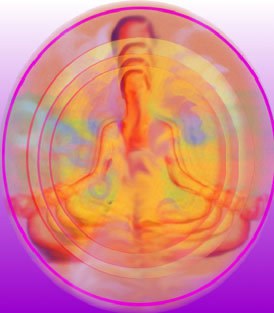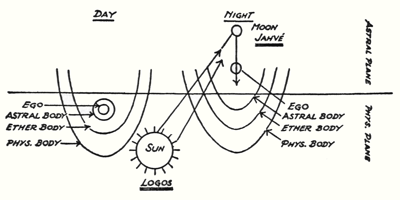…before the middle of the twentieth century there will be people possessed of a natural etheric clairvoyance, who, since mankind has reached the epoch in which this will develop as a natural gift, will perceive the etheric body as permeating the physical body and extending beyond it. Just as man, once able to see into the spiritual world, has descended to the merely physical perception and intellectual comprehension of the external world, so he begins gradually to evolve new and conscious capacities which will be added to the old ones. One of these new capacities I should like to characterize.
There will be people — at first only a few, for only in the course of the next two or three thousand years will these capacities evolve in larger numbers, and these first forerunners will be born before the end of the first half of the twentieth century — who will have an experience something like the following. After taking part in some action they will withdraw from it, and will have before them a picture which arises from the act in question. At first, they will not recognize it; they will not find in it any relation to what they have done. In the end they will see that this picture, which appears to them as a sort of conscious dream-picture, is the counterpart of their own action; it is the picture of the action which must take place, in order that the karmic compensation of the previous action may be brought about.
Thus we are approaching an age in which men will begin to understand karma not only from the teachings and presentations of Spiritual Science, but in which they will begin actually to see karma. Whereas until now karma was to man an obscure impulse, an obscure desire, which could be fulfilled only in the following life, which could only between death and a new birth be transformed into an intention, man will gradually evolve to a conscious perception of the work of Lucifer and its effect. Certainly only those will have this power of etheric clairvoyance who have striven after knowledge and self-knowledge. But even in normal circumstances men will have more and more before them the karmic pictures of their actions. That will carry them on further and further, because they will see what they still owe to the world — what is on the debit side of their karma.
~Rudolf Steiner




